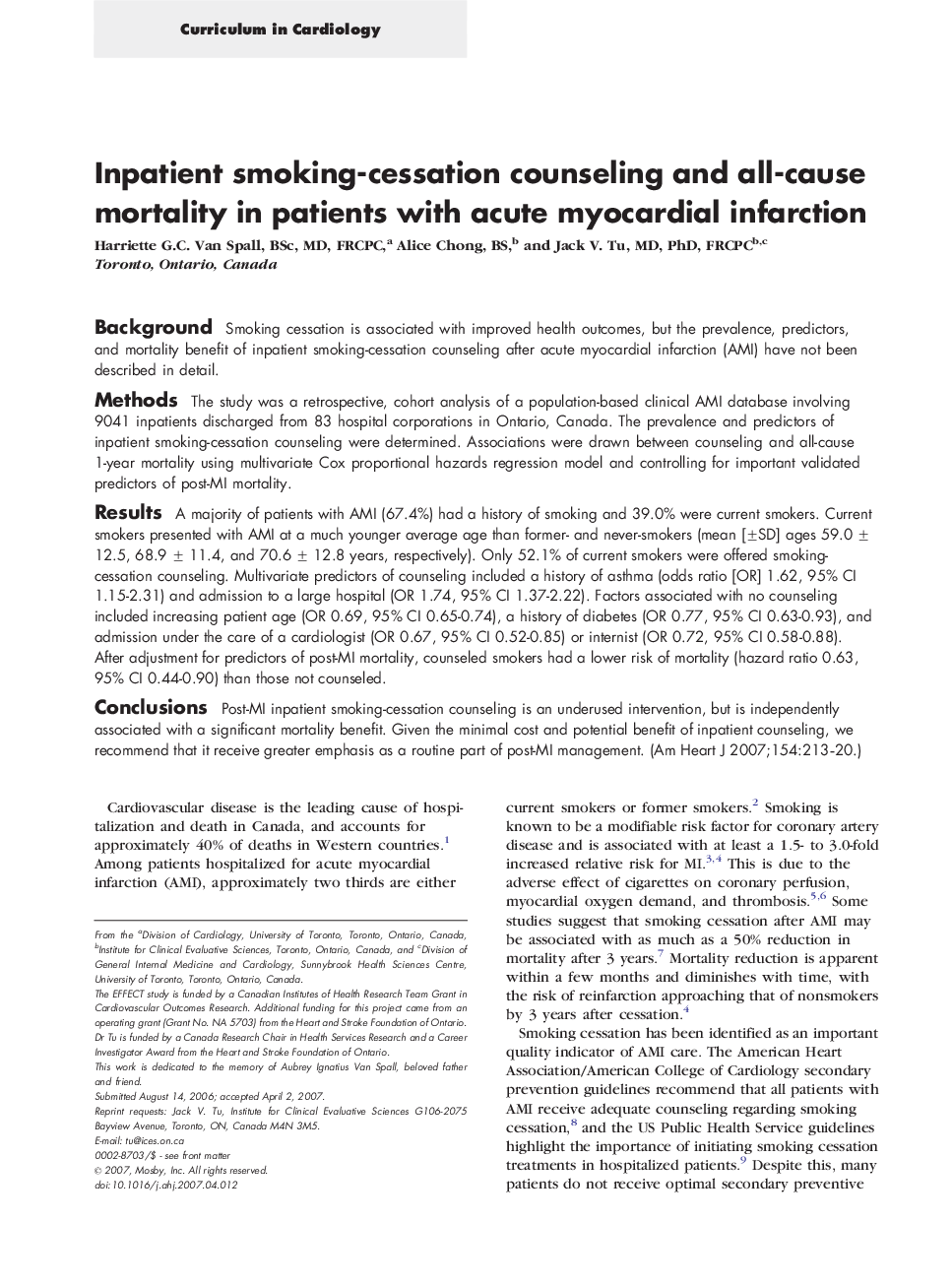| کد مقاله | کد نشریه | سال انتشار | مقاله انگلیسی | نسخه تمام متن |
|---|---|---|---|---|
| 2851527 | 1167853 | 2007 | 8 صفحه PDF | دانلود رایگان |

BackgroundSmoking cessation is associated with improved health outcomes, but the prevalence, predictors, and mortality benefit of inpatient smoking-cessation counseling after acute myocardial infarction (AMI) have not been described in detail.MethodsThe study was a retrospective, cohort analysis of a population-based clinical AMI database involving 9041 inpatients discharged from 83 hospital corporations in Ontario, Canada. The prevalence and predictors of inpatient smoking-cessation counseling were determined. Associations were drawn between counseling and all-cause 1-year mortality using multivariate Cox proportional hazards regression model and controlling for important validated predictors of post-MI mortality.ResultsA majority of patients with AMI (67.4%) had a history of smoking and 39.0% were current smokers. Current smokers presented with AMI at a much younger average age than former- and never-smokers (mean [±SD] ages 59.0 ± 12.5, 68.9 ± 11.4, and 70.6 ± 12.8 years, respectively). Only 52.1% of current smokers were offered smoking-cessation counseling. Multivariate predictors of counseling included a history of asthma (odds ratio [OR] 1.62, 95% CI 1.15-2.31) and admission to a large hospital (OR 1.74, 95% CI 1.37-2.22). Factors associated with no counseling included increasing patient age (OR 0.69, 95% CI 0.65-0.74), a history of diabetes (OR 0.77, 95% CI 0.63-0.93), and admission under the care of a cardiologist (OR 0.67, 95% CI 0.52-0.85) or internist (OR 0.72, 95% CI 0.58-0.88). After adjustment for predictors of post-MI mortality, counseled smokers had a lower risk of mortality (hazard ratio 0.63, 95% CI 0.44-0.90) than those not counseled.ConclusionsPost-MI inpatient smoking-cessation counseling is an underused intervention, but is independently associated with a significant mortality benefit. Given the minimal cost and potential benefit of inpatient counseling, we recommend that it receive greater emphasis as a routine part of post-MI management.
Journal: American Heart Journal - Volume 154, Issue 2, August 2007, Pages 213–220